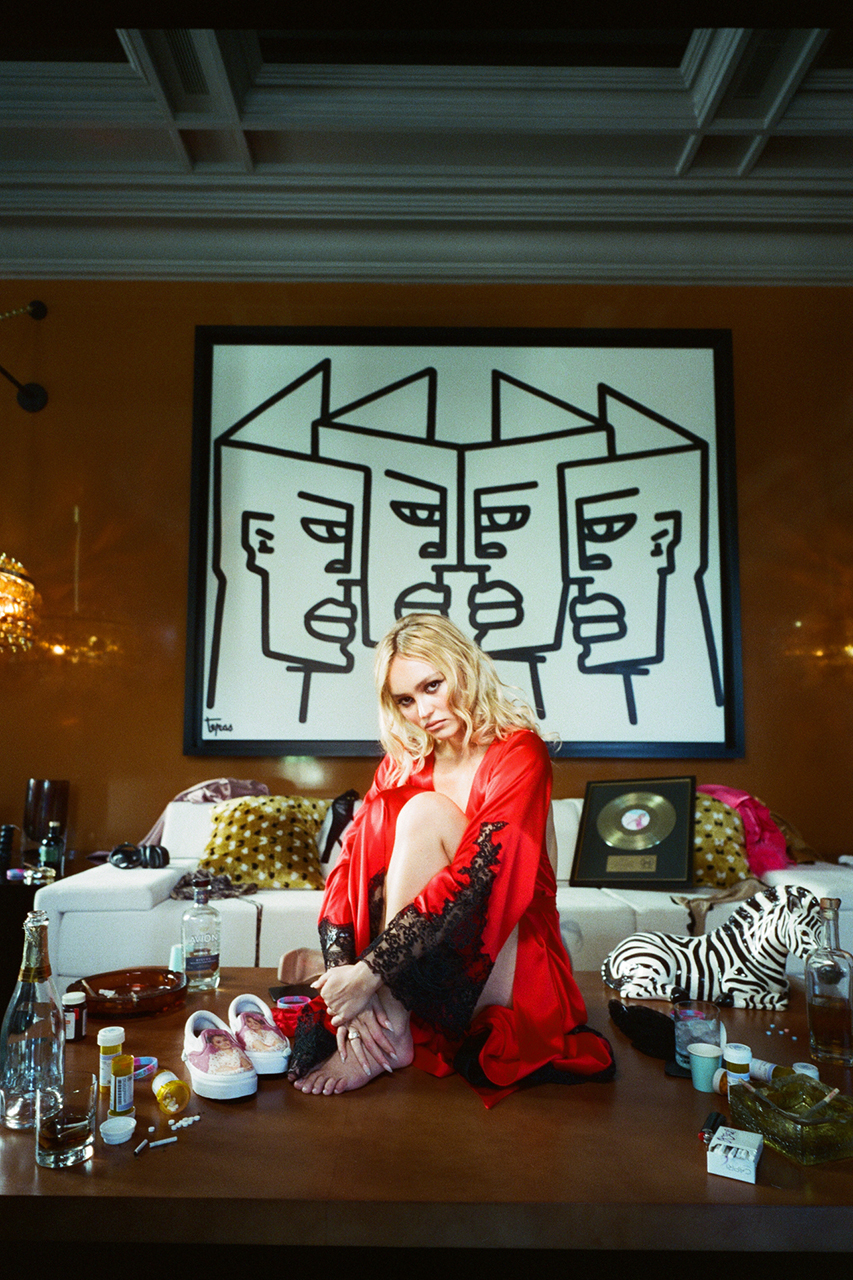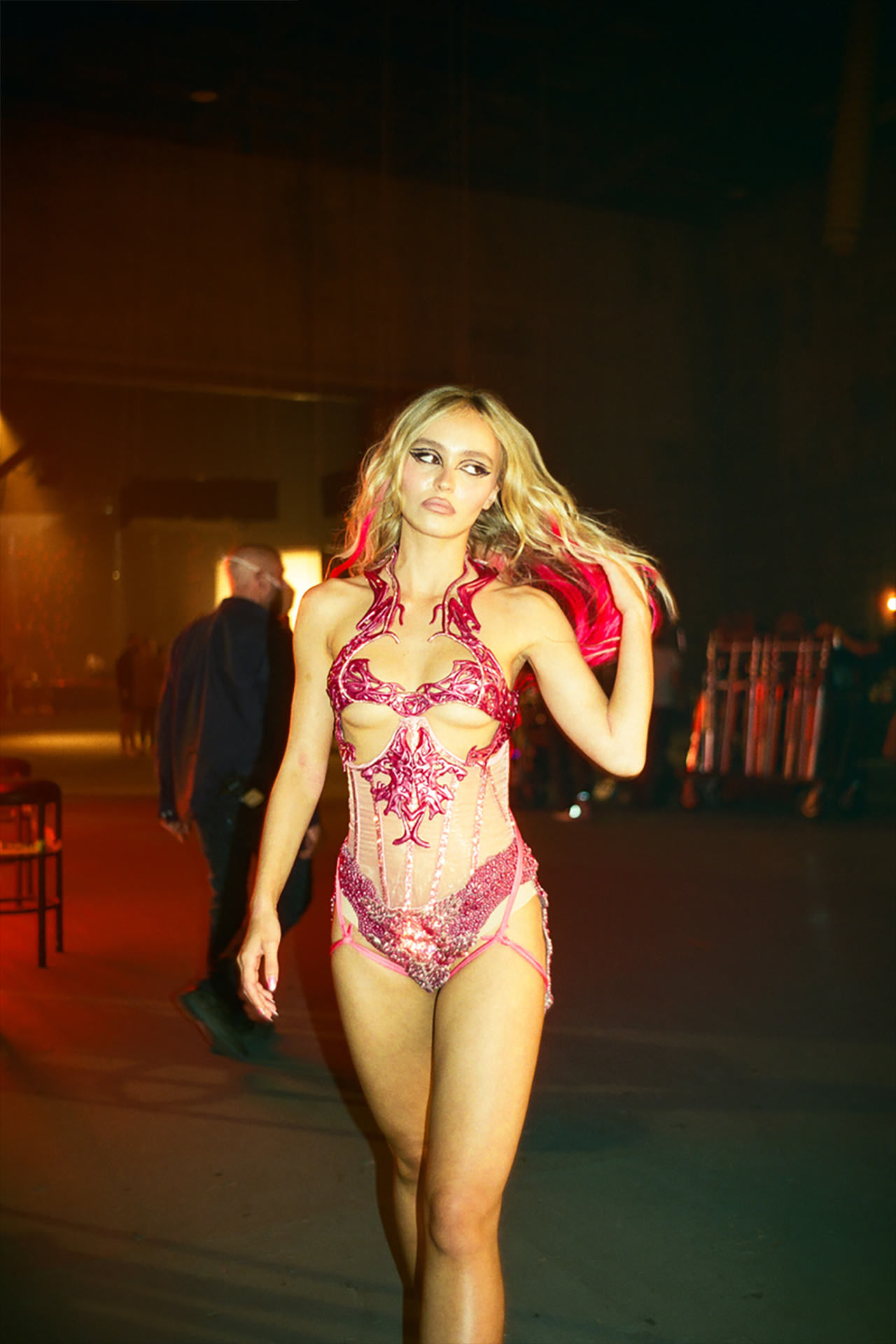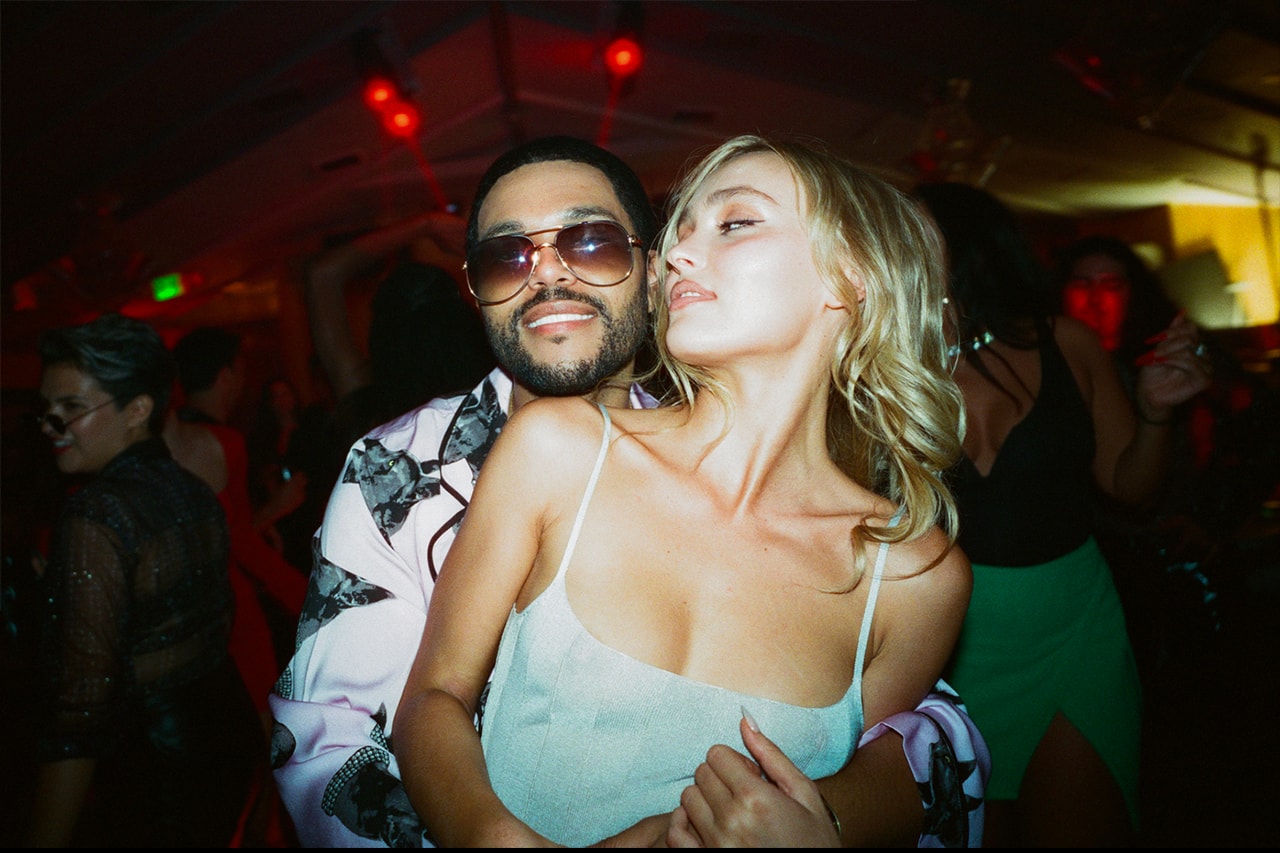
For the past few weeks, The Idol has been on everyone’s mind, anticipating what sex and drug-fueled schemes would fill the premiere of Sam Levinson‘s latest show.
While Lily-Rose Depp‘s makeup artist and BLACKPINK‘s Jennie‘s flawless dance skills delivered, the rest of the episode sadly did not. The Euphoria creator’s attempt to pull back the curtain on Hollywood amounted to an hour-long fever dream that felt like a parody of a parody.
Focusing on Jocelyn’s precarious position as a hugely famous yet troubled singer, The Idolseemingly mocks the trappings of stardom, while pointing to the rampant mistreatment of female entertainers. However, its slightly clumsy acting and less than nuanced storytelling results in a bit of a masturbatory ode to the tropes it slyly professes to hate. Within the first few minutes, the flashy (formerly HBO) Max drama dived into the scandalous c-m sock moment, attempting to provide satire on our culture’s swiftness to tear down successful female pop stars, using the hyper-sexuality we demand of them as the weapon.
Moments earlier, Jocelyn is arguing with the intimacy coordinator because she can’t show her breasts on her album cover without the proper paperwork. Troye Sivan tries to protect her, but her manager is defending her outfit of a hospital bracelet and robe, choosing to romanticize her mental illness and the recent death of her mother as it appeals to men who could only hope to have sex with a woman like her if she were unwell. In this moment, The Idol speaks to Gen Z’s disappointment with Gen X apathy and jadedness. When her manager jokes about sleeping her way to the top and underplaying the severity of the leaked photo, you can feel the unhealed generational trauma. Her team moves quickly to spin her sexy selfie as revenge porn as one character tells Dan Levy to “shove it down the throat of every dips–t with a keyboard.”
It goes without saying that leaking the private photos that someone consented to sharing with you, but not with the public, is unequivocally wrong, regardless of the subject’s status. What the show haphazardly tries to say is that everything in Hollywood is a business. As the Vanity Fairinterviewer tries to get Jocelyn to trust and confide in her by turning off her recorder and telling that she finds her ability to focus in the midst of a scandal impressive, the seasoned star continues her performance, turning the device back on. She tells the reporter that perhaps a few years ago, she would have bought into the idea that speaking out against revenge porn would have been empowering, but now she knows that she’s being hustled.
The carefully placed Chanel sunglasses, pearl halter top and slim cigarettes all feed into the fabrication of Jocelyn’s curated persona.
The episode progresses as you might expect, following Jocelyn on a night out with her well-meaning assistant/best friend and other sycophants, as she encounters Tedros, played by none other than The Weeknd. The rat-tailed club owner instantly casts his warm spotlight on the blonde beauty, sparking a musically-inclined romance between the two. Cue visual references to Scarface and The Weeknd’s cringey moment in the bathroom, practicing saying “Hi angel,” the show’s climax portrays a stark power reversal. While Jocelyn made Tedros wait for her grand entrance down the gleaming, white stairs, wearing heels so she could be taller than him, Tedros suffocated her with her own robe to enhance her vocal performance.
The erotic yet scary scene leaves some viewers wanting to know how far Jocelyn will go down the rabbit hole. Overall, The Idol is an aesthetics-driven homage to Hollywood, open about the fact that being a celebrity is like living in a golden cage. Based on first impressions, its heavy-handed presentation and predictable dialogue fails to move the needle forward.
HBO‘s The Idol released and the reviews are raising the question: was Episode 1’s approach to sexuality as damning as its Cannes Film Festival reviews?
This post contains spoilers.
According to the number of reviews, The Idol sex scenes painfully missed the mark — despite buzzy moments like cum scenes and violent sex. The first episode however, dives head first into the world of Jocelyn (played by Lily-Rose Depp).
The final scene of the episode many were unamused by, features Tedros (played by Tesfaye) and Jocelyn discussing her upcoming music, which she is also unamused by. Tedros, seemingly attempting to comfort her, tells her to “sing it like you know how to fuck,” and long story short, he covers her mouth with her robe causing her to choke. He then pokes a whole in the mouth and tells her “now you can sing.”
Unfortunately, viewers are not buying it with TV critic Kelly Lawler noting “yawn.” In her USA Today review, she spoke of the series lacking “substance,” with Jocelyn’s portrayal void of “personality or interest,” — her clear love of cigarettes aside. “All we know about her is that she likes sex and wishes she was a better dancer,” she continued.
Eric Degas, writer for NPR shared a similar sentiment stating, “It also feels a lot like the male gaze in action — what a roomful of guys might think a woman’s reaction would be, rather than a choice that feels authentic.”
One commonality across all reviews addresses Levinson’s love for violent sex and the public’s uncomfortability with it. As a result, reviewers feel Levinson and Tesfaye use this to their advantage but unfortunately, it doesn’t appear to be translating well for viewers.
For more on sexuality and TV, Netflix’s first queer dating show reveals a major spoiler.


No comments:
Post a Comment